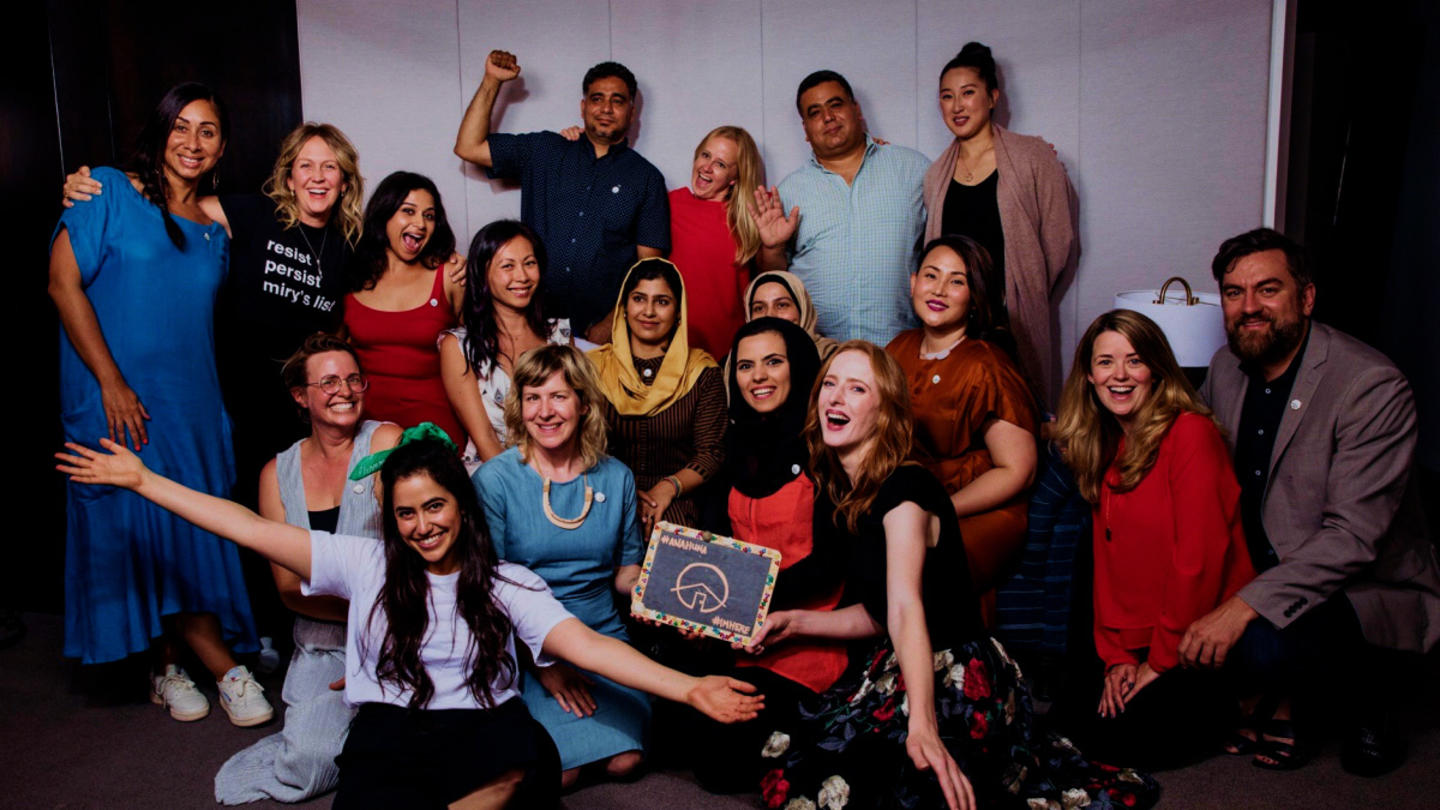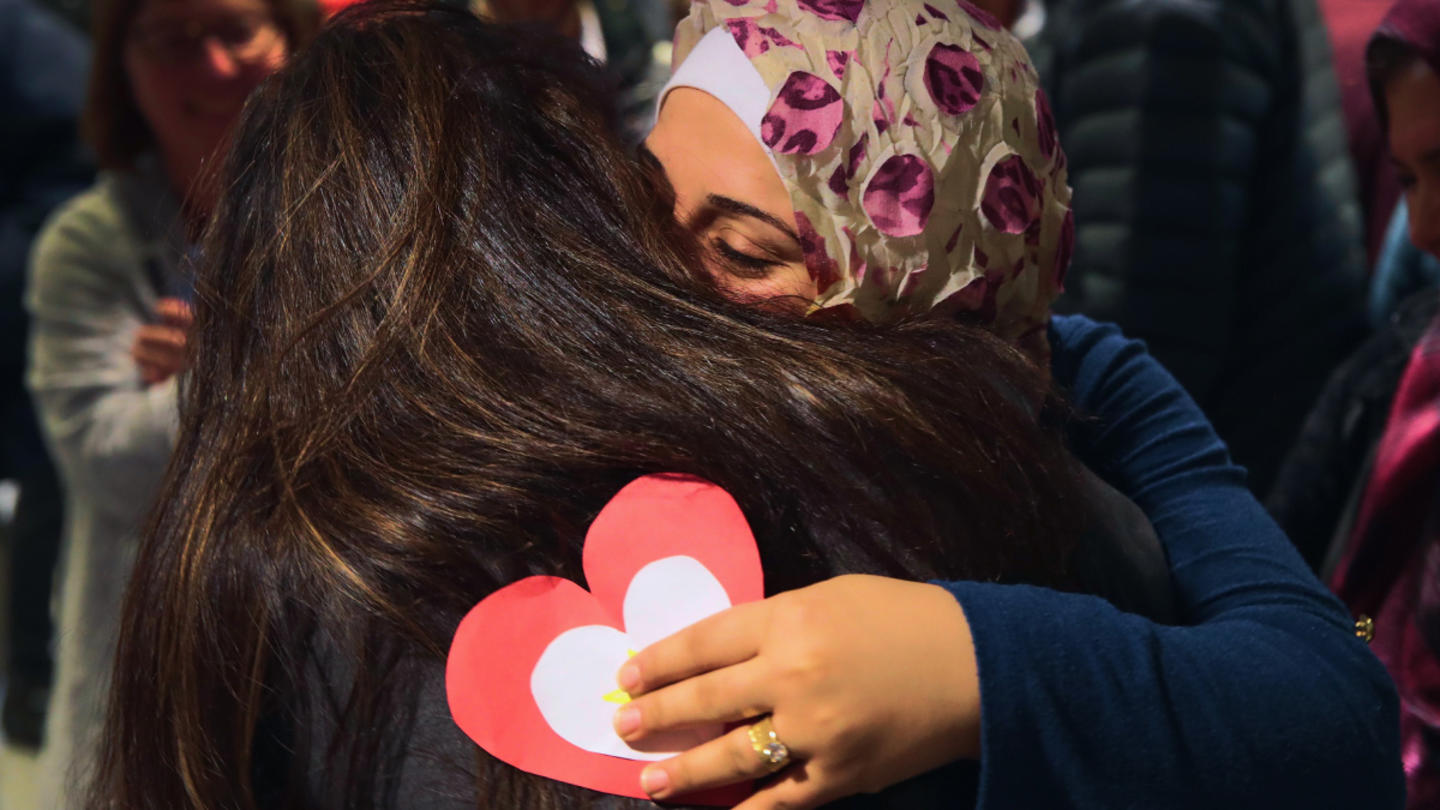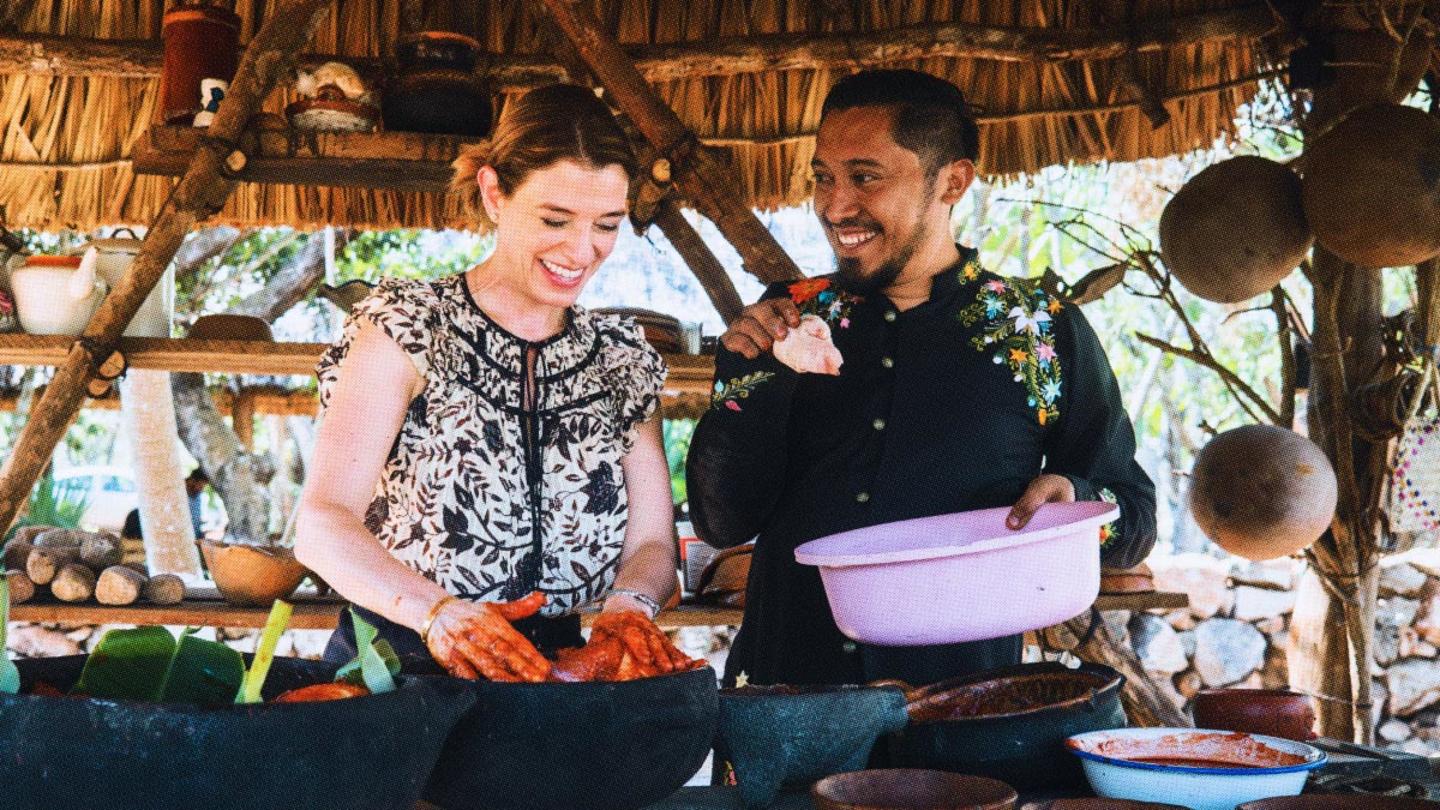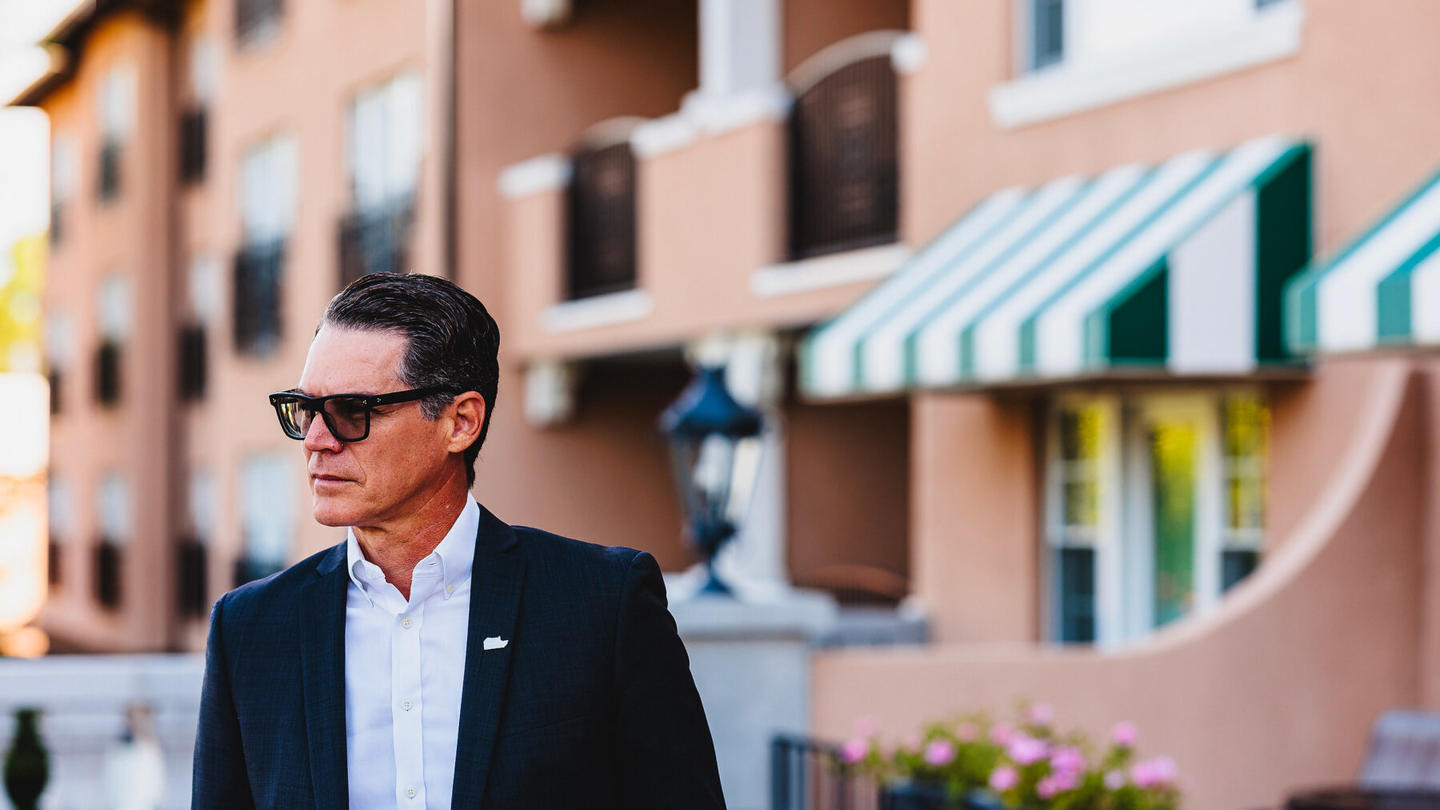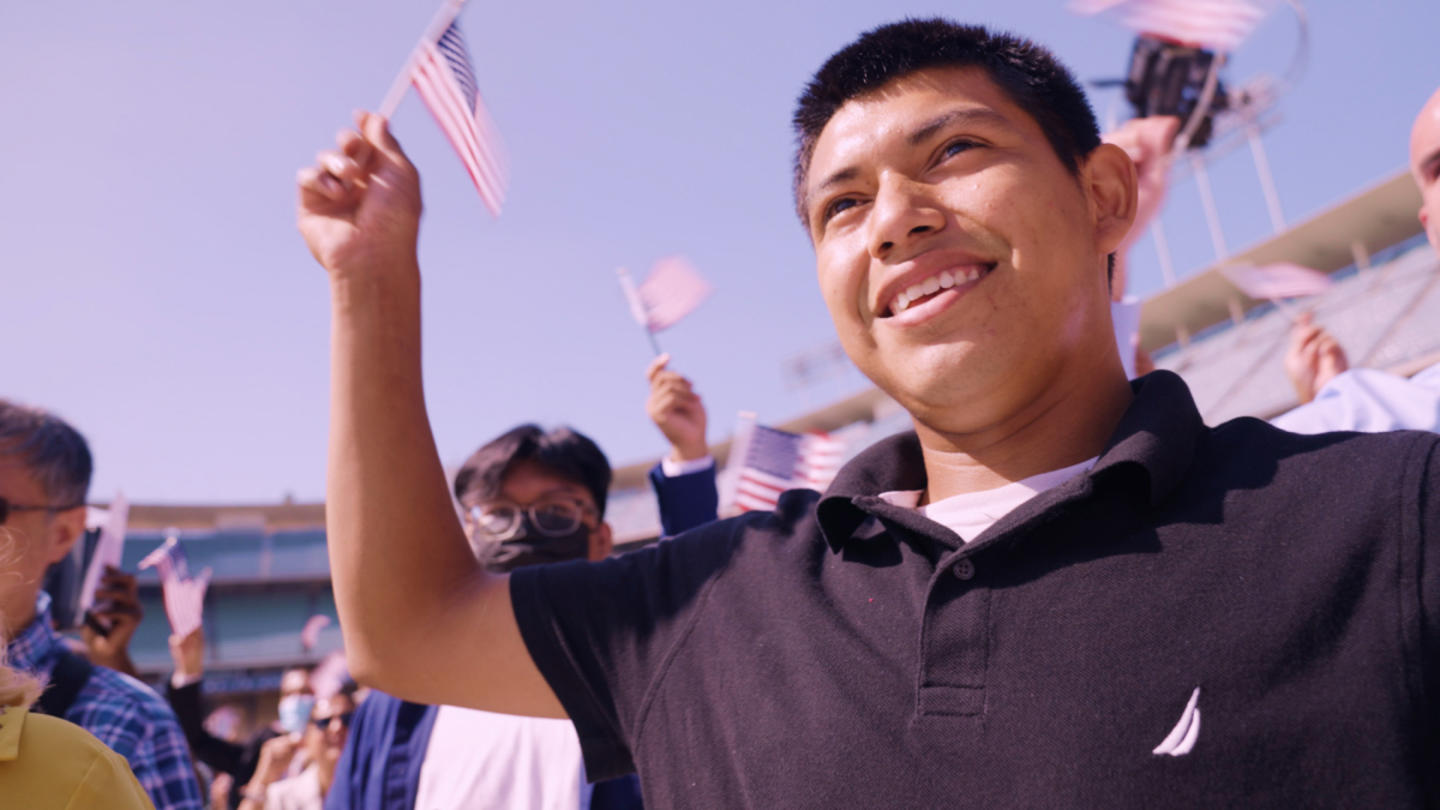Miry's List changes lives, brings together communities, and empowers people from all over the world – but it started with a Jumperoo.
Seven years ago, Miry Whitehill was on maternity leave with her second child in Los Angeles when a friend connected her with a local Syrian refugee family who needed a chair. More specifically, they needed a Jumperoo, the kind of small, colorful chair a baby can bounce in happily for a few minutes while their parents do something else. Whitehill had one she no longer needed, but when she brought it over, she noticed the family also needed furniture, clothes, and many other staples.
Even the Jumparoo itself was an important step. With it, "Mom and Dad could conduct their lives, wash dishes, take a shower," Whitehill says. "All these things that we take for granted, everyday things that people need to do to take care of themselves and others that are really hard to do when you're holding a baby in your house."
After leaving the family, Whitehill hand wrote a list of their needs on notebook scrap paper and posted it to Facebook. The local community offered clothing, furniture, food, and a sense of belonging in the process.
That was the first list. From there, Miry's List has grown into the biggest platform in the world for fulfilling refugees' "wish lists" as they resettle into their new homes.
"The children who are resettling here through the refugee program … they're attending our public schools," Whitehill says. "They're sitting next to our kids in their classrooms. They're playing at the playgrounds with our kids. [It's not about the] power dynamic between the giver and the receiver… The reality is we need each other."
Miry's List helps refugees build a home
As of May 2022, there are 100 million refugees worldwide. The war in the Ukraine has increased that number by 10.7 million. Of these individuals, 12,500 were resettled to the U.S. in 2021.
Miry's List publishes individual families' lists online and belongings are crowdsourced. This could be anything from laptops to food to furniture to school supplies.
"These things are more than just things," Whitehill says. "Ultimately, what we want is for families to wake up in their new homes, to look around the room and to see a space that reflects who they are as individuals, and once we can be sure that a family is able to sleep comfortably, we can continue on with the other support services that we're providing."
"Survive" is the first phase of a 12-month long program that Miry's List guides families through. The second, "Hive," is the longest, lasting around months two to ten. After getting the basics they need to survive, families focus on assimilating into their surroundings and building a community and sense of belonging. This is accomplished through signing them up for ESL classes, career mentorship, mental health services, playdates, and social gatherings. Finally, during the "Thrive" phase, families continue putting down these social roots, and mentor new arrivals themselves.
The program is not one-size-fits-all: All three stages are customizable to a family's unique needs and strengths, and they opt into each piece with their consent.
The ultimate goal is to equip families with autonomy. Through the skills, education, and relationships built during the Hive phase in particular, refugee families are given the opportunity to use their already-existing skills and strengths. This enables them to pursue self-actualization: to build the home and lives that they want for themselves, such that they can contribute to their new communities and home country.
Refugee assimilation has tangible benefits for communities, too
Miry's List is not just a charity helping refugee families: It is a two-way benefit that is just as life-changing for the communities refugees are assimilating into.
To see this reality, Whitehill needs only to look at her two children, who were a newborn and toddler when she first started Miry's List. They are now seven and ten years old.
"I grew up in a very homogeneous environment," Whitehill says. "I hardly knew anyone who wasn't Jewish until I went to college. I was surrounded by people who, for the most part, looked like me. And it lacked diversity in a very real way … The world that my kids are growing up in is so much more diverse. They have friends from all over the world. My kids have grown up with Miry's List as a part of their lives."
As a result, her children are more empathetic and open-minded, and recognize the strengths and benefits refugee families offer to the communities they assimilate into.
"They have met kids from everywhere, they can tell you the languages that are spoken in Afghanistan, they're familiar with Syrian food and Iranian food and they have explored cultures with their friends," Whitehill says. "They have seen what the homes look like of their friends who just moved here. They have an understanding of why people move around the world, and how to be welcomers."
Miry's List doesn't just stop at donating clothing and possessions to families: The crux of the program is the relationships it builds through community dinners, social events, and playdates. Through these interactions, communities benefit just as much as newly-arrived families, expanded and enriched by the variety of identities, backgrounds, and talents that refugees bring.
Recognizing that this openness is best learned young, Miry's List places emphasis on educating the growing generation of children, not just adults. Many volunteers bring their children along, to model being welcoming and open-minded to them. Miry's List publishes educational materials for "Tiny Welcomers" aged 3-9; 5th-8th graders; and those aged 16 and up, to educate and establish a sense of empathy in the younger generation. Whitehill also just published a book, "Our World is a Family," to help further open up conversations among younger children.
Miry's List: A leader in refugee family services and refugee integration
From that first handwritten list, Miry's List has gone on to distribute over one million dollars worth of housewarming gifts to 1,097 families and counting, according to Whitehill. There have been 256,000 participants in the program so far, and availability has expanded to refugee families and volunteers across the country.
New lists are posted to the site regularly, and each has the potential to be far more than a shopping trip. Every family and volunteer that participates in the program joins an ever-growing network of individuals willing to build relationships and share experiences, creating more welcoming and diverse communities along the way.
"I think that that is so important, and not only for my kids, I think it's important for every single person in our community," Whitehill says. "That's what I think about when I'm wondering about the overall value of Miry's List. What's the ripple effect?"
Miry's List is supported by Stand Together Foundation, which partners with the nation's most transformative nonprofits to break the cycle of poverty.
Learn more about Stand Together's immigration reform efforts.
